![]()
Sun, March 4, 2012
Originally published in The Meir Amit Intelligence and Terrorism Information Center’s bulletin 158: “Discourse on shari’ah aspects of nuclear weapons development continues following Supreme Leader’s statement at meeting with nuclear scientists.”
An article published last week on Supreme Leader Ali Khamenei’s official website and the Tabnak website listed the reasons why Islamic religious law prohibits the development of nuclear weapons. The author of the article is Hojjat-ol-Eslam Ahmad Mobaleghi, chairman of the research center of the Association for Proximity of Islamic Schools of Thought in the city of Qom. In the article, the cleric discusses Supreme Leader Ayatollah Ali Khamenei’s ruling on the prohibition of developing and using nuclear weapons. Speaking at a meeting with nuclear scientists held last week, Khamenei said once again that Iran has no desire to obtain nuclear weapons, and that possessing and using such weapons is forbidden in Islamic religious law.
Mobaleghi argues that the Supreme Leader’s ruling which bans the development of nuclear weapons is based on three major principles drawn from the Quran. The first is the principle of “burden”, which states that no man should bear the burden and suffer the consequences of another’s actions. The use of nuclear weapons contradicts this principle as it severely impacts a large group of individuals and even affects future generations.
A second principle states that any course of action that can eventually lead to an immoral deed must be avoided. Strategic studies show that obtaining nuclear weapons can lead to using them, potentially triggering a war during which immoral acts will be committed. Hence, developing and arming oneself with nuclear weapons is forbidden according to this principle.
A third principle is the principle of “sin”, which states that if committing a certain act leads to a sin whose severity outweighs its inherent benefits, that act is forbidden. Developing nuclear weapons is forbidden, since using them is a sin whose severity outweighs the benefits of their development (Tabnak, February 25).
Another article published on the Supreme Leader’s website says that, in principle, Islamic religious law permits the possession for deterring power of weapons that make one more powerful and instill fear among enemies. However, this is provided that the cost of obtaining such weapons is not greater than their expected benefit, i.e. the power they confer upon their owner and the fear they create among enemies. For example, while North Korea and Pakistan do possess nuclear weapons, they weaken those countries instead of making them stronger, the article says, adding that, at any rate, using such weapons is forbidden (http://rovatehadis.com/archives/25854).
These two articles are yet another expression of the discourse that is taking place in Iran in recent years on the theological aspects of developing and using nuclear weapons. On several occasions, top Iranian officials claimed that Supreme Leader Ayatollah Ali Khamenei had previously issued a fatwa (which was never published) prohibiting the development of nuclear weapons and ruling that it goes against Islamic religious law, as Islam forbids the indiscriminate killing of innocents even in times of war. In October 2009, top reformist cleric Ayatollah Hossein-Ali Montazeri also released a fatwa according to which developing and using nuclear weapons is forbidden in Islamic religious law. The ruling was given when he was asked by liberal cleric and intellectual Mohsen Kadivar to comment on the shari’ah aspects of nuclear weapons. Montazeri, who passed away in December 2009, ruled that developing nuclear weapons is a waste of national resources and a threat to other countries, and that using them leads to the killing of innocent people and hurts future generations, which is why they go against Islamic religious law. The citizens of a country that develops such weapons must take any possible action to prevent their leaders from continuing down this road.
Clerics affiliated with the radical right wing, on the other hand, have indirectly sanctioned the development of nuclear weapons. In a book of theological and political reflections published in 2005, Ayatollah Mohammad Taqi Mesbah Yazdi argued that Iran must independently produce “special weapons of a particular kind” that other countries have. In February 2006, Mohsen Gharavian, one of Mesbah Yazdi’s students, was quoted as saying that, with the whole world equipped with nuclear weapons, it is only appropriate that they should be used when fighting an equal enemy.



 RSS
RSS

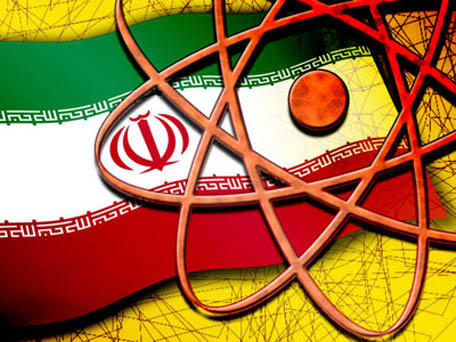
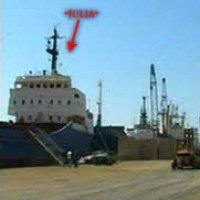
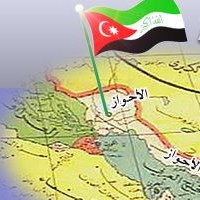
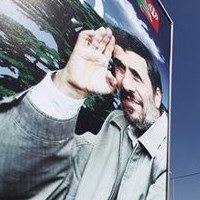
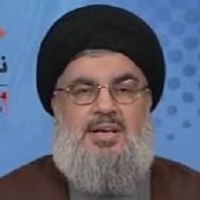
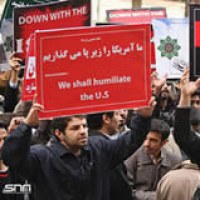




Latest Comments
Hello Mike, Thank you for your positive feedback to the article. I felt there wasn’t too much critical analysis of ...
Thanks for this considered and well constructed article. A follow up article on the manner in which the editorial contro...
THE CLUELESSNESS OF CLAIMING THAT OBAMA'S MIDDLE EAST POLICIES WERE A FAILURE CANNOT BE FURTHER FROM THE TRUTH, WHAT THE...
As long as Obama is the president of the usa do not trust the us government......
Thank you for an good read....